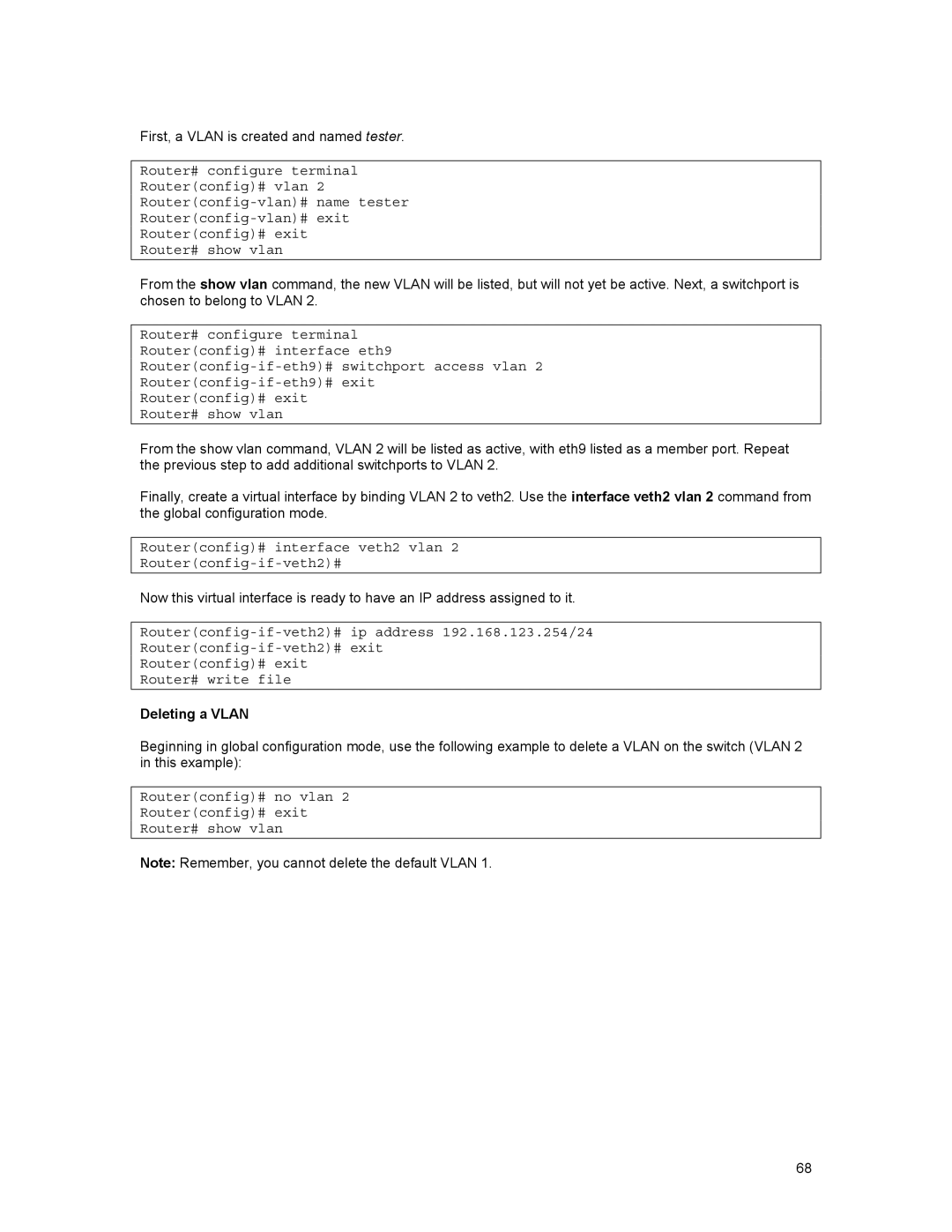
First, a VLAN is created and named tester.
Router# configure terminal
Router(config)# vlan 2
Router(config)# exit
Router# show vlan
From the show vlan command, the new VLAN will be listed, but will not yet be active. Next, a switchport is chosen to belong to VLAN 2.
Router# configure terminal
Router(config)# interface eth9
Router(config)# exit
Router# show vlan
From the show vlan command, VLAN 2 will be listed as active, with eth9 listed as a member port. Repeat the previous step to add additional switchports to VLAN 2.
Finally, create a virtual interface by binding VLAN 2 to veth2. Use the interface veth2 vlan 2 command from the global configuration mode.
Router(config)# interface veth2 vlan 2
Router(config-if-veth2)#
Now this virtual interface is ready to have an IP address assigned to it.
Router(config)# exit
Router# write file
Deleting a VLAN
Beginning in global configuration mode, use the following example to delete a VLAN on the switch (VLAN 2 in this example):
Router(config)# no vlan 2
Router(config)# exit
Router# show vlan
Note: Remember, you cannot delete the default VLAN 1.
68
